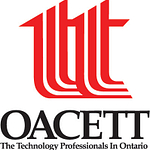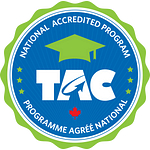Food Science Technology (Fast Track) (Optional Co-op)
How To Apply
Program Details
- Program Code3631
- Credential TypeOntario College Advanced Diploma
- SchoolSchool of Applied Sciences
- Program TypeFast-track program
- Program Length2 years/ 4 semesters
- Delivery ModeHybrid
- LocationMorningside Campus
- Emailabes@centennialcollege.ca
- Telephone416-289-5000
- Program Overview
- Courses
- Career Options and Education Pathways
- Admission Requirements
- Co-op Option
- How to Apply
- Tuition and Fees
- Program Vocational Learning Outcomes
- Advising
The Food Science Technology (Fast-Track) program will grant qualified college or university graduates direct admission into Year 2 (Semester 3) of this three-year advanced diploma program, allowing them to receive their advanced diploma in two years (four semesters).
The Centennial College Food Science Technology program will integrate and apply knowledge within the disciplines of microbiology, chemistry, engineering, biology and nutrition to preserve, process, package and distribute foods that are healthy, affordable, desirable and safe to eat.
This college science program will prepare you for food science careers in areas such as quality control/ assurance, laboratory analysis, product development and food safety.
Program Overview
The Food Science Technology (Fast-Track) program will grant qualified college or university graduates direct admission into Year 2 (Semester 3) of this three-year advanced diploma program, allowing them to receive their advanced diploma in two years (four semesters).
The Centennial College Food Science Technology program will integrate and apply knowledge within the disciplines of microbiology, chemistry, engineering, biology and nutrition to preserve, process, package and distribute foods that are healthy, affordable, desirable and safe to eat.
This college science program will prepare you for food science careers in areas such as quality control/ assurance, laboratory analysis, product development and food safety.
Courses
Career Options and Education Pathways
Program Highlights
- In Centennial College's fully equipped labs, you receive comprehensive laboratory training that ranges from foundational to professional skills.
- You experience practical, hands-on activities with a wide range of instrumentation throughout the Food Science Technology (Fast Track) program.
Career Outlook
- Quality assurance
- Quality control technician
- Sales representative
- Product development technician
- Product development coordinator
- HACCP coordinator
- Food safety program (i.e. BRC/SQF) practitioner
- Sanitation coordinator
- Food microbiologist
- Food safety specialist
- Regulatory affairs associate
- Production lead hand
Education Pathways
Graduates of the Food Science Technology (Optional Co-op; Fast-track) advanced diploma program have the opportunity to apply learning achieved at Centennial for credits toward further study at the degree level. Listed below are institutions offering pathways for this program.
Please note that each receiving institution has minimum admission requirements in order to qualify for transfer credits, which are assessed by the receiving institution.
| Region | Institution |
|---|---|
| Toronto GTA | Seneca Polytechnic |
| York University | |
| Ontario | Algoma University |
| Lakehead University | |
| Ontario Tech University |
For more detailed pathways information, visit our website at //centennial.adv-pub.moveonca.com/outgoing-home/.
Use the following Education Pathways Checklist as a guide as you explore your options.
For pathways to other Ontario post-secondary institutions, please visit ONTransfer.
Educational Partners
Please visit our website at www.centennialcollege.ca/admissions/applying/education-pathways/outbound-pathways for more information on education partners.
Recognitions
The Ontario Association of Certified Engineering Technicians and Technologists (OACETT) recognizes this TAC nationally-accredited program as meeting the academic standard for certification in the Certified Engineering Technologist (C.E.T.) category as well as the OACETT technology report and language benchmark requirements.

Accreditation
This program has met the national educational standards of Canada’s engineering technology and applied science profession, as such, has received national program accreditation by Technology Accreditation Canada (TAC).

Please note: The qualification requirements and costs for each external accreditation, designation, certification or recognition are set by the granting body — not by Centennial College. In order to qualify for any external accreditations, designations, certifications or recognition, students and graduates will need to follow the processes and meet the applicable requirements listed on the websites and in the materials of those external bodies.
Areas of Employment
Areas of EmploymentAdmission Requirements
Academic Requirements
- Degree or a three-year college diploma in chemistry/biology, engineering, or related discipline
Additional Requirements
- Transcript review
- Centennial English Admission Test.
- English language proficiency
Co-op Option
The co-op option in this program will provide you with the opportunity to gain hands-on experience while you complete two co-op work term as an employee in the field. This experience not only allows you to put classroom learning into practice, but will also provide valuable contacts for your future career.
To participate in this co-op option, you will need to complete an application process in semester 1. If academically qualified, you may be admitted to the co-op program. Academically qualified students who are accepted into the program will register for the co-op preparation course as scheduled.
Co-op Requirements
- Minimum of 80% of courses completed from semester one
- Completion of COMM160/161 by the end of semester 1 with a C grade (60%) or higher
- A cumulative GPA of 2.5 or higher (this must be maintained for the duration of the program)
- Students must be legally eligible to work in Canada
- Students who meet the above prerequisites will submit their application for co-op to the Career Services & Cooperative Education Department in semester 1
Note: Meeting the minimum co-op program requirements does not guarantee admission into the co-op program.
Co-op Model Route
| Fall Semester Intake | |
|---|---|
| Fall | Semester 1 |
| Winter | Semester 2 |
| Summer | Co-op Work Term 1 |
| Fall | Co-op Work Term 2 |
| Winter | Semester 3 |
| Summer | Break |
| Fall | Semester 4 |
| Winter Semester Intake | |
|---|---|
| Winter | Semester 1 |
| Summer | Semester 2 |
| Fall | Co-op Work Term 1 |
| Winter | Semester 3 |
| Summer | Co-op Work Term 2 |
| Fall | Semester 4 |
How to Apply
1. Apply Online
Domestic Students
If you are applying through the Better Jobs Ontario Program, please work with an Employment Ontario service provider. For more information go to Better Jobs Ontario Program.
If you have previously attended a full-time program at Centennial College, you may be eligible for a Program Transfer. Visit Enrolment Services at any Campus for information.
All other applicants must apply online at Ontariocolleges.ca. A non-refundable application fee of $150 must accompany applications. The fee is payable online, by telephone, online banking, by mail, or in-person to Ontariocolleges.ca. For more information go to Ontariocolleges.ca Application Fees.
International Students
Apply directly to Centennial College here.
2. Submit Documents
Domestic Applicants
Current Ontario high school students and graduates from Ontario high schools: Notify your guidance counsellor that you have applied to college and your school will forward transcripts to Centennial College via Ontariocolleges.ca.
Graduates of college/university, or high school outside Ontario but within Canada: You are responsible for requesting that your educational institute sends any required documents and transcripts to Ontariocolleges.ca.
Domestic applicants who attended school outside of Canada: If you are submitting transcripts to meet admission requirements, you must have the transcripts assessed by an independent credential assessment agency such as World Education Services (WES) or International Credential Assessment Service (ICAS). For more information go to Submitting your Transcripts.
International Applicants
Please refer to the International Education Application Guide.
3. Confirm Your Offer of Admission
Offers of Admission are sent by mail to eligible applicants. When you receive your offer, you must login to your account at Ontariocolleges.ca and confirm before the Deadline to Confirm noted in your offer letter.
You may confirm only one college and one program offer at a time.
You must confirm your offer by the Deadline to Confirm noted in your Offer of Admission letter or your seat may be given to another applicant.
When you confirm your Offer of Admission at Centennial College you are given access to your personal myCentennial account where you can check your email, grades, register for courses, pay tuition fees, and see your class timetable.
4. Pay Fees
Centennial fees statements are sent by email to your personal email account and to your myCentennial email account. Fees statements are not mailed.
You must make a minimum payment by the Fees Deadline noted in your Fees Statement or your seat may be given to another applicant.
5. Build Your Timetable (Register for Courses)
Build your timetable (web-register for courses) at my.centennialcollege.ca.
Fall registration begins mid-July
January registration begins mid-December
May registration begins mid-April
Your web-registration will not open if:
You have not submitted your minimum fee payment by the deadline
You received a Conditional Offer of Admission and you have not met the conditions of your offer.
Once you have paid your fees or have made appropriate arrangements, register for your courses online through myCentennial.
Tuition and Fees
Fees noted below are estimates only. Tuition is based on two semesters, beginning Fall 2025.
| Student | Tuition (2 Semesters) | Ancillary Fees | Total |
|---|---|---|---|
| Canadian | $2,721.00 | $1,495.33 | $4,216.33 |
| International | $18,254.00 | $1,993.28 | $20,247.28 |
Program Vocational Learning Outcomes
Program Vocational Learning Outcomes
Program Vocational Learning Outcomes describe what graduates of the program have demonstrated they can do with the knowledge and skills they have achieved during their studies. The outcomes are closely tied to the needs of the workplace. Through assessment (e.g., assignments and tests), students verify their ability to reliably perform these outcomes before graduating.
- Complete all work in a food science environment adhering to current and relevant chemical, biological, and physical concepts/theories.
- Employ appropriate laboratory techniques for a given protocol or experimental design, and perform laboratory duties in compliance with legislation, regulations, policies and procedures relevant to occupational health, safety, environmental, and ethical practices.
- Analyze and interpret qualitative and quantitative laboratory results in order to draw conclusions, and make recommendations
- Prepare, maintain, interpret, and communicate scientific data effectively, and communicate technical information and scientific data in oral and written formats
- Define relationships among safe food principles and practices, distinguish among Good Manufacturing Practices (GMPs), Good Laboratory Practices (GLPs), Hazard Analysis and Critical Control Points (HACCP), Codex Alimentarius, and make appropriate choice of food safety practices and guidelines for implementation given operational-specific scenarios.
- Explain how safe food practices are implemented in different sectors of the food industry, including formulation, food processing, manufacturing, storage and transportation.
- Utilize standard laboratory techniques and procedures for identification and quantification of contaminants in equipment, food and water.
- Apply water management principles and practices needed for safe water usage in food production, plant sanitation, processing and manufacturing, and for subsequent effective wastewater treatment.
- Integrate principles of food science, food microbiology, food processing, chemistry, pest control, waste management and sanitation in the development of a plant sanitation procedure.
- Develop a risk management strategy for a specific food industry or operation, given a scenario identifying a potential and/or realized threat to food safety.
- Compare and contrast municipal, provincial, federal and international laws, regulations, and guidelines pertaining to food safety, and describe the relevant relationships and channels of communication among different levels of government.
- Abide by legal and professional standards, ethical practices and codes of conduct.
- Personality TestSTARTMatch your personality to a career
- Career ExplorerLEARN MOREExplore your future career
